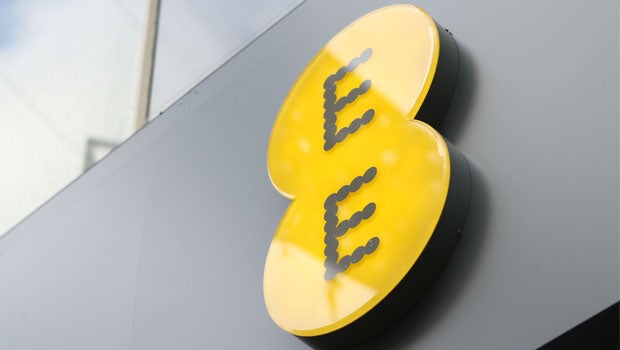Score one for Three – EE ads BANNED over ‘misleading’ 4G claims

UPDATE 7/12: EE has clarified that the ASA ruling concerned two ad complaint assessments.
In the first case the ASA ruled in EE’s favour, saying that its 4G network being 50% faster claim was accurate and substantiated within the ad, and therefore not misleading to consumers.
For the second, the ASA concluded that the stats EE used in the ads were accurate, but the source of these claims needed to be referenced more clearly.
And EE spokesperson said: “Contrary to reports, the ASA ruled that our 50% faster claim was not misleading. They confirmed that our claim was 100% accurate and that it was based on reliable, independent tests.
“The claim expired in October 2016, and the ad had been replaced before this ruling was confirmed. They did, however, say that we should have made it clearer to customers that the claim was based on tests from a specific time period.
“We know the importance of being transparent about the network experience consumers can expect, so we will make sure our top independent network rankings and awards are presented more clearly in future.”
The Advertising Standards Authority (ASA) has banned an EE advert following complaints from rival network Three and two members of the public over ‘misleading’ 4G claims.
EE’s TV, press, and web promotion compared 4G speeds between Three and O2, with the web advert claiming EE’s 4G network was “75% faster” than Three UK and “70% faster” than O2 and Three UK.
The promotions ran between April and May 2016, and included a TV ad that claimed EE was “50% faster than O2, Vodafone and Three.“
Related: CES 2017
Based on Ookla’s 2015 speed awards and study, the ads were deemed to be misleading due to EE not making clear how the included speed figures were reached (via ISPreview).
The text explaining the basis for EE’s claims was either too small, unlinked, or appeared too far down in the advert.
The ASA’s ruling read: “Because the claims related to an annual award based on testing over a particular time period only, but the ads did not explain that adequately, we concluded that ads (a), (b) and (c) were likely to mislead.
“On this point ads (a) and (b) breached CAP Code (Edition 12) rules 3.1 (Misleading advertising), 3.7 (Substantiation) and 3.33 (Comparisons with identifiable competitors).
“On this point ad (c) breached BCAP Code rules 3.1 (Misleading advertising), 3.9 (Substantiation) and 3.33 (Comparisons with identifiable competitors).”
While EE wasn’t making false claims then, it was found to have breached the above CAP rules due to the lack of prominence for the Ookla 2015 speed awards source.
The network was told by the ASA to ensure future adverts “did not suggest that comparisons were accurate at the time the claim was published unless they held adequate evidence.”
WATCH: iPhone 7
Let us know what you make of the ASA’s ruling in the comments.

